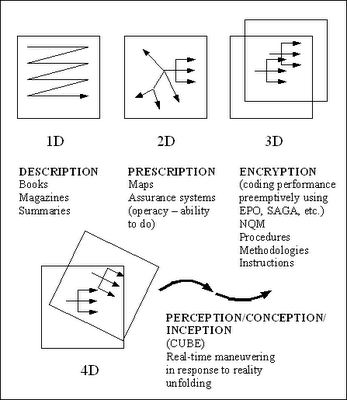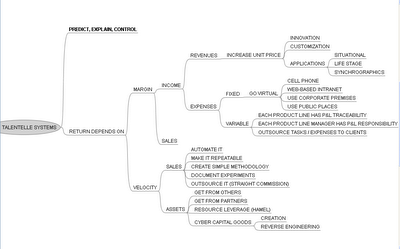The only game in town is one you can't play, part 2
June 2008
"You see, most people think that Communism died on November 9, 1989. But it's not true. Communism STILL exists, hidden deep within Capitalism."
"What do you mean?" she asked.
"The Berlin Wall came down, but the Corporate Wall is still up. Within a corporation, people are living and working under a Communist-like regime. Think about it: you can't complain publicly about the authorities, you can't do anything without permission from "above", you can't get rich through your own ideas or initiative, you are a "prisoner" 9 to 5, they're watching everything you say and what you write by email (yes, they have ways to track every single email you send out or receive)... Those are the very conditions that prevailed under any Communist regime prior to 1989."
"Well, Peter, if that is true, how come people don't quit? The Corporate Wall is not like the Berlin Wall, where they actually shoot you if you try to flee from the East to the West."
"You're right, they don't shoot you in the back as you try to escape, but they have psychological measures that are far more effective. These psychological measures are part of what the late economist John Kenneth Galbraith called "managed public response."
"But who's trying to manage the public response?"
"Capitalists, of course. The government, too. You know, a lot of people talk about "financial freedom" as if it were something you strive for and achieve. But they all miss one important point: it is in someone's interest that you remain a prisoner of what I call "corporate communism." In other words, someone really, really wants you to be financially NON-FREE. This person will do anything to distract your mind while plunging you further and further into debt, so that you have no choice but to sell your labour-power to capitalists.
In fact, there are two kinds of capitalists: the 9 to 5 type, and the 5 to 9 type. Retailers are the 5 PM to 9 PM type: they get you to spend all your money, so you have as little left as possible. That way, you are forced to keep working for the 9 to 5 capitalists!"
"Peter, let me get this straight... You're saying there is a conspiracy among capitalists to keep people dependent on the capitalist system which exploits them?"
"You got it. Capitalists are not necessarily bad people. Look at what Bill Gates and Warren Buffett have done. They're totally into philanthropy now. Rather, it is the capitalist system that exploits people. If you know about capitalism and business, you will benefit from its genius and you WILL achieve financial freedom, just as I did. But if you don't know about business and capitalism, the system will ruthlessly exploit you till you retire or you die, whichever comes first.
I woke up in June 2000, but I've the feeling many people in my family and among my friends are still sleeping. They still don't realize what truly happened in 1989. And they have a hard time accepting the fact that the corporate workplace is a Communist-like regime."
(to be continued)





